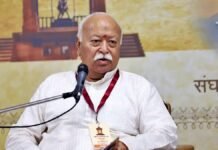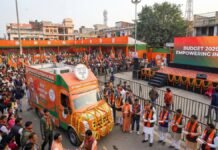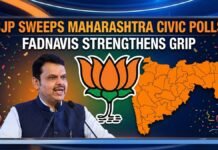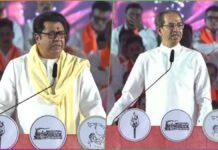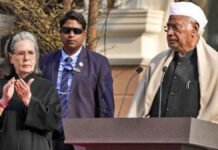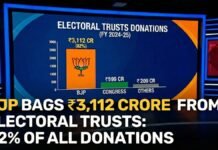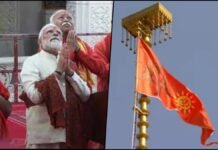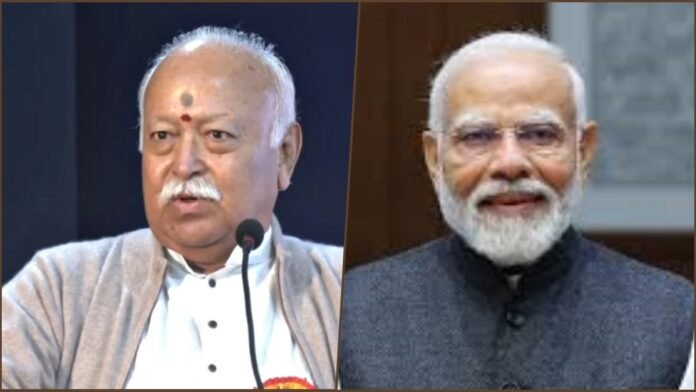
Key Points:
- Historic visit: PM Modi visited the RSS headquarters in Nagpur on March 30, his first visit as Prime Minister in nearly 11 years.
- Leadership deadlock: Despite Modi’s outreach, the RSS has not supported BJP’s proposed candidates for the next party president.
- RSS demands: The Sangh insists on a “strong organisational leader” rather than a “rubber stamp” for the top post.
- Factionalism issues: Internal disputes in key states like Uttar Pradesh and Madhya Pradesh have delayed state-level leadership appointments, further complicating the selection process.
New Delhi: Prime Minister Narendra Modi’s visit to the Rashtriya Swayamsevak Sangh (RSS) headquarters in Nagpur on March 30 was seen as a strategic move to mend ties with the Sangh and secure its approval for his choice of the next BJP president. However, over ten days later, no consensus has been reached, with the RSS remaining firm on its demand for a strong organisational leader to lead the party.
This was Modi’s first visit to the RSS headquarters in his nearly 11-year tenure as Prime Minister. During his visit, Modi praised the RSS as the “Akshay Vat” (eternal protector) of India’s culture and engaged in cordial discussions with Sangh chief Mohan Bhagwat. Despite this show of camaraderie, insiders reveal that the RSS has not endorsed any of the names proposed by BJP leadership.
RSS Stands Firm Against Modi-Shah Duopoly
The RSS has reportedly expressed concerns about the centralisation of power under Modi and Home Minister Amit Shah. Since 2014, both leaders have dominated party affairs, which Sangh insiders believe has weakened BJP’s organisational structure. The RSS is now pushing for a leader who prioritises grassroots-level organisational strength over personal loyalty to Modi or Shah.
Several names, including senior ministers from Modi’s cabinet, have been forwarded by BJP leadership but have failed to gain Sangh approval. This stalemate highlights growing tensions between the BJP and its ideological mentor.
Delay in Leadership Selection: Nadda Continues Dual Role
The delay in electing a new BJP president has extended JP Nadda’s tenure beyond its original term. Nadda has been serving as both BJP president and Union Health Minister, violating the party’s “one person, one post” principle. While BJP leaders initially expected a new president to be announced by early April, it now appears that this decision may be postponed until later this month.
Factionalism Adds to Leadership Crisis
Internal disputes within state units have further complicated matters. In Uttar Pradesh, a power struggle between factions loyal to Shah and Chief Minister Yogi Adityanath has delayed the appointment of a state president. Similar factionalism is evident in Madhya Pradesh and other key states like Bihar and West Bengal. These unresolved conflicts have hindered the completion of organisational elections required for forming an electoral college to vote for a new national president.
What’s Next?
An RSS leader hinted that discussions are ongoing and expressed hope that a resolution would be reached soon. However, with no immediate breakthrough in sight, BJP leaders are left grappling with internal challenges that could impact their preparations for upcoming elections.
The ongoing leadership crisis underscores the delicate balance between the BJP and its ideological parent, the RSS, as both navigate challenges ahead of crucial electoral battles.




































